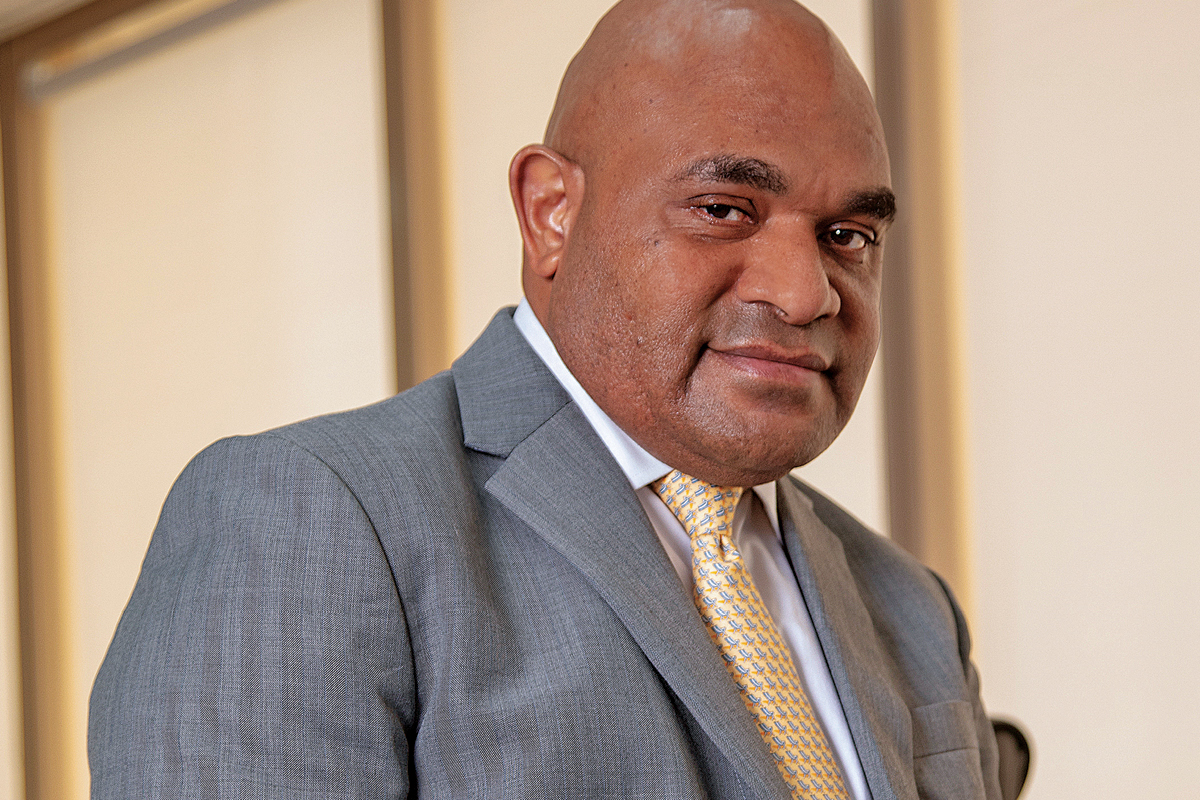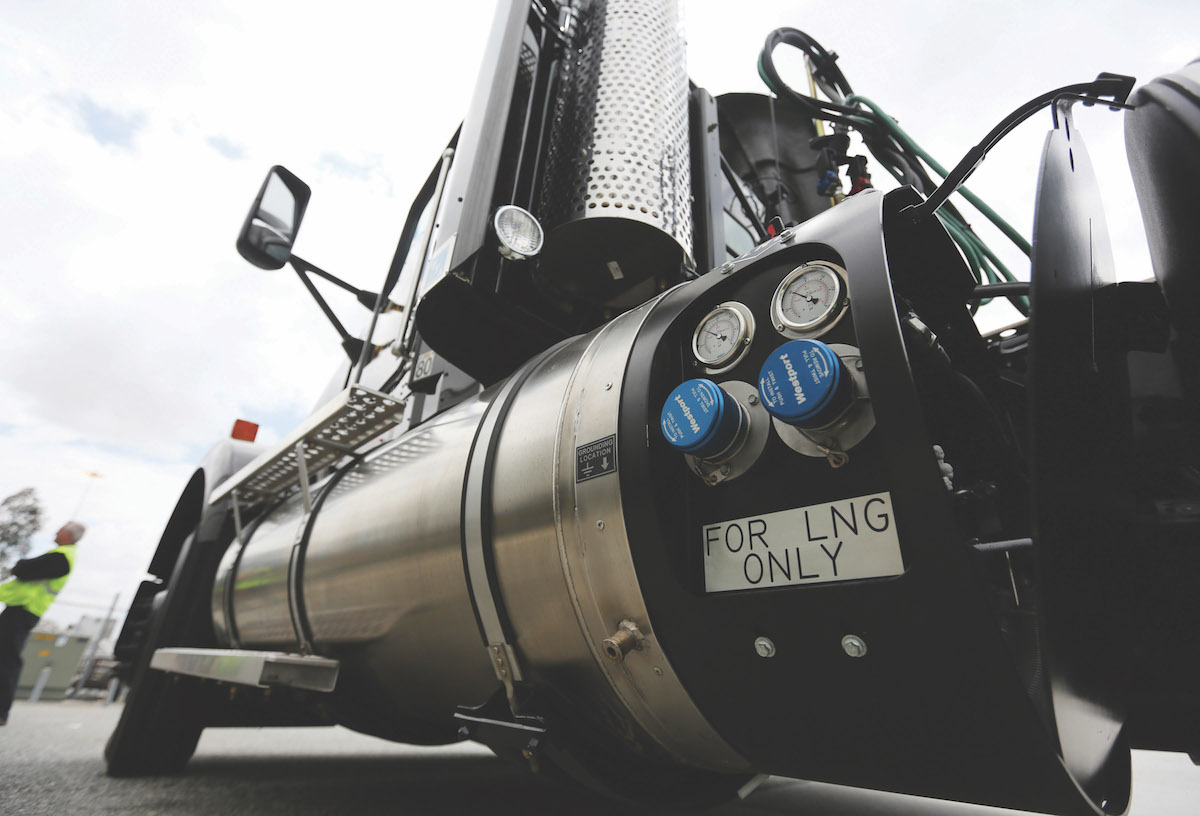Fuelling the economy: Wapu Sonk
Kumul Petroleum’s Managing Director Wapu Sonk wants to leverage the company’s strengths to drive Papua New Guinea’s economy.
Kumul Petroleum Holdings was established in 2009 by the government of Papua New Guinea. Its mandate included oversight of the state’s interest in the US$19 billion PNG LNG project, the nation’s flagship project, which transitioned the country from oil exporter to now liquefied natural gas (LNG) exporter.
Wapu Sonk has served as the company’s Managing Director since 2013, having brought with him two decades of industry experience. This has left him with a keen eye for the future of PNG’s Petroleum and Energy, and a passion to improve not just the country’s energy industry, but its society as a whole.

The CEO Magazine: So, what triggered your interest in the industry
Wapu: It certainly started with my cousins working in mining. That triggered my interest in the industry while I was still in high school.
You studied at the Melbourne Business School. How did that help prepare you for your career?
That was part of a development plan that was put in place by Oil Search Ltd, whom I was working for at the time. It was designed for me to develop management and leadership skills, instead of just focusing on engineering.
PNG has recently begun transitioning from oil to LNG production. What’s Kumul Petroleum’s connection to the PNG LNG project?
Our oil exports started around 1990–91. The industry grew from that. Several oil and gas companies such as BP and Chevron were involved in that development. Since 2009 or so, they’ve gone from oil production to exporting LNG. That continues today; there is more talk now around LNG Projects in the country than we have had in many years.
What’s the state of oil and gas resources in PNG compared with that of other countries?
PNG’s oil and gas resources are more conventional. There are no non-conventional resources, like coal bed methane gas or shale gas. The proven resource base is also there for at least three more new LNG trains.
Does that mean PNG is a safe market for producers?
Yes. We have very light, sweet crude [low-density and low-sulphurous crude, and therefore high-quality]. Even in the gas, there aren’t any impurities. Given our geographical location, being closer to the Asian market, PNG is fortunate to be well-positioned to compete with other projects in the Asia–Pacific region. We also have a very stable government, a very stable fiscal system and very good track record for delivering every product to the markets or the buyers. This makes PNG enormously competitive when it comes to oil and LNG production and supply to customers.
What kind of presence does the company have in the Asia–Pacific market?
In PNG itself, our mandate is to participate in upstream, midstream, downstream; all spectrums of the oil and gas industry. We have 20.5% interest in every project that gets developed in PNG. We have close to 17% in the PNG LNG project, and 20.5% in the PapuaLNG project and others reaching development stages. So, all in all, we have a strong local presence but a much smaller footprint outside of the country. As far as our regional presence is concerned, we have a small marketing office in Singapore but that’s about it. Otherwise, we are an entirely PNG-based oil company.

How do PNG’s oil and gas resources compare with other energy resources like wind, solar and hydro?
PNG is blessed with an entire spectrum of energy resources; wind, hydro, geothermal, coal and biomass – all kinds. But gas is probably our dominant economic resource. Most of the energy production in PNG now is LNG and hydro. Kumul Petroleum and Oil Search have equal ownership in building a power plant that will supply 58 megawatts to Port Moresby City. So that’s our first project in trying to utilise gas to supply energy to the local market.
How do these resources directly benefit the people of PNG?
Through developments like the PNG LNG project and other Petroleum and Energy projects. Obviously, we think there is huge socio-economic impact from construction, through to production phases of the development, as well as the entire lifespan of the projects. PNG citizens benefit through tax, royalties and levies. So these resource developments bring a lot of wider benefits, beyond just the direct benefits of projects. We do realise the importance of these project developments and the effect it has on the overall economy.
You held your second PNG Petroleum and Energy Summit in March. How important is this for PNG?
The summit combines petroleum and energy discussions. A few of us in the energy and petroleum sectors thought we should promote and have a local conference, since the industry’s big enough. I myself wanted the summit to be used as a platform to discuss alternative energy sources to petroleum. We’ve had a whole lot of discussions around petroleum development and policies, along the different spectrums of the oil and gas sector. But I think energy discussions were left behind. All of this led to the conference so we could have more conversations on energy. The first two summits have been a real success, and we’re looking at a third one next year.
What do you see as the future of energy?
The people and companies are realising that we already have the energy resources available; we just need to harness them. The message is getting louder. We have skilled labour, and if we have cheap, reliable energy we will attract investment and initiate economic growth, which will then create jobs and help the overall GDP and economy. The importance of energy is beginning to sink in. Things like the summits are great for getting this message across.
Would you say that PNG is ready for the future of energy?
Yes, we’re getting there, for example, by Kumul Petroleum and Oil Search jointly building this power plant in Port Moresby to use gas-fired engines. By doing this, we are sending a strong message that we need to focus on reliable, cheap energy for industry and the community. So we’re getting there, and PNG is ready for the future.
What kind of team do you have at Kumul? We’re not really that big. We have around 72 employees, |and almost 80% of them are locals. We also have a lot of experts who are highly skilled, mature individuals and have a lot of experience in the industry. They can pass on their knowledge, provide leadership and fill skill gaps. It’s designed to provide the knowledge transfer and leadership skills required to build a company and its future.
To what extent is the PNG education system and job market producing well-qualified candidates?
In other sectors, they are, but with oil and gas, we’re not there yet. I believe geology and similar subjects are covered in PNG, but there’s no specialised oil and gas engineering school. We just require some supplementary training to bridge these gaps. However, Kumul Petroleum also has an academy through which we are producing technicians for the industry. Operations, mechanical, maintenance and electrical training – the institute provides training specifically for the oil and gas field. We try to improve the skills of individuals so they can work effectively in the industry; not in terms of white-collar jobs, but in the blue-collar, technician jobs.
How important is it for companies to have that kind of educational process to try and help improve the workforce as a whole?
I think it’s extremely important. When we started work on the PNG LNG project, we had all these skilled jobs – welding, pipe bending, even scaffolding and safety – but a lot of those skills came from outside PNG. We realised we needed those skills internally, and that’s why we’ve started training technicians. In the next phase of development, there will be enough people in the country who can take on a good share of those skilled jobs that will be needed.
How would you describe the culture of your company?
It’s a new company, so everybody’s very energetic. They see we’re in the centre of everything – upstream, midstream, downstream – and that we’re working alongside a lot of the best companies in the industry and the world. They see it is a growing company. Kumul is expanding and building good relationships and alliances with other companies, producing different skills and addressing different needs. As a result, it’s a very dynamic company. Everybody is really excited to work for it. We also compensate them well and we’re very competitive in the labour market.
How do you view Kumul’s relationship with environmental protection?
Working with, and being a partner of, some of the biggest oil and gas companies encourages environmental awareness. Kumul’s requirements on safety and the environment are high. So a major part of the company’s key focus areas is environmental protection. We ensure strict compliance. There is also a government agency that makes sure the oil and gas companies that are working with us do meet the regulatory requirements.
Kumul Petroleum has a strong sense of social responsibility; for example, you’ve sponsored the Oceania Swimming Championships. Why is that sort of initiative important to the company?
Although we are new, we are the biggest company in PNG. But our assets are in the mountains, and below ground, and in the buried pipelines. There’s no real visibility of who we are, what we own, or the assets we have. So we look at all the value that gets created from our oil and gas resources and we try to maintain this social consciousness, and transfer some of the wealth created into social development, by getting involved in different kinds of events. For example, we are heavily involved in charity golf, supporting homeless kids and we’ve funded disaster relief efforts and others.
What sort of leader are you?
I’d probably say hands-on. I come from a technical background, so I do get a bit hands-on at times.
What advantages do you see in this management style?
I see the direction that oil, gas and energy development is going in, as well as its requirements. I have a strong drive to make sure that we, in the oil and gas management space, contribute to the development of the country. The people who work for me can see my mission and drive, and they want to be part of it. So I think that’s what makes me a good leader – following through on this vision and making it happen and creating the energy to bring others along.
What changes do you hope to see in the near future in PNG?
I see PNG going from an oil exporting country to now LNG exporter, which could easily reach five LNG trains producing close to 20 million tonnes per annum (20mtpa). It will creating a lot of wealth for the country and sure enough, PNG will develop to a middle income country hopefully in the next 20 years.